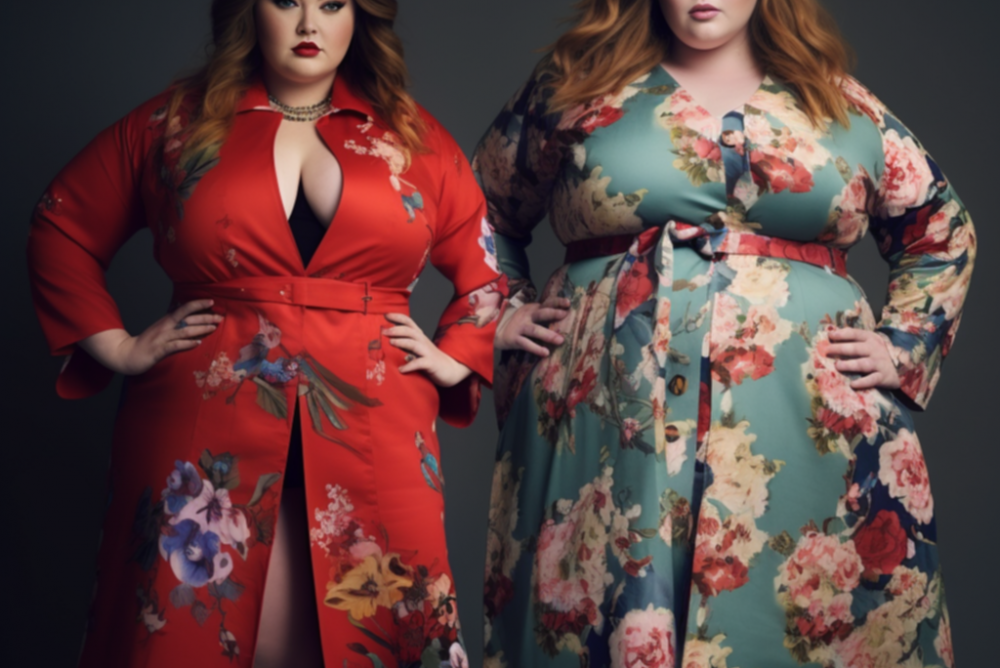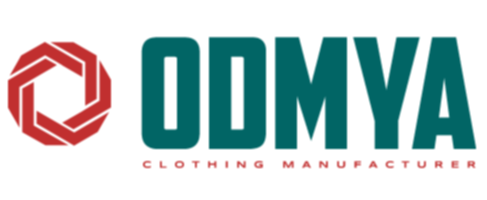Inclusivity Revolution: The Impact of Private Label Plus Size Fashion


The fashion industry has often been criticized for its lack of inclusivity, focusing predominantly on a very narrow representation of body types. However, recent years have seen a significant shift, with a growing demand for more diversity and inclusivity in fashion. One key driver of this change has been the rise of private label plus size clothing, which is transforming industry standards and empowering individuals of all sizes to express themselves through fashion.
In this article, we will delve into the factors that are reshaping the fashion industry, with a particular focus on private label plus size clothing. We will understand the concept of private label clothing, explore its rise, and understand its impact on fashion norms. The article will also highlight successful case studies, explore challenges, and forecast the future of inclusive fashion.
1: The Shifting Landscape of the Fashion Industry
Consumer demands have started to change the fashion industry, with an increasing demand for more size inclusivity. This shift can be attributed to several societal and cultural changes, such as the body positivity movement that emphasizes self-love and acceptance of all body types.
The market size for plus size clothing is also growing. The global plus size women's clothing market was valued at USD 175.08 billion in 2021 and is expected to reach USD 243.6 billion by 2025, growing at a CAGR of 6.9% during 2020-2025 (source: Grand View Research). This increasing market size signifies a clear demand for more inclusive sizing options in the fashion industry.
2: Understanding Private Label Plus Size Clothing
Private label clothing refers to apparel that is produced by one company to be sold under another company's brand. This approach has become increasingly popular, especially in the plus size clothing segment.
The rise of private label plus size clothing can be attributed to several factors. Firstly, it allows brands to provide a wider range of sizes without significant additional costs. This can be particularly beneficial for smaller brands that might not have the resources to produce a full range of sizes independently. Additionally, the private label model allows for greater control over product quality, design, and pricing.
The private label model is beneficial not just for the brands but also for the consumers. It allows for a broader selection of clothing styles and sizes, enabling more people to find clothing that fits well and suits their personal style.

3: The Impact of Inclusivity on the Fashion Industry
Inclusivity has brought about an impactful change in the fashion industry. Brands are starting to recognize the importance of catering to all body sizes, leading to an increased representation of plus-size models and fashion influencers.
Private label plus size clothing, in particular, has disrupted traditional fashion norms. By offering a more diverse size range, these brands are challenging the status quo and promoting the idea that fashion should be accessible to everyone, regardless of size. This change isn't just good for consumers - it's also good for business. As brands become more inclusive, they can connect with a broader audience and tap into a growing market.
4: Case Studies: Successful Private Label Plus Size Brands
1. Torrid
Torrid is a well-recognized brand in the plus size fashion industry. Founded in 2001, it has become a go-to source for trendy and fashionable plus size clothing. They offer a variety of styles, from casual to professional to party-ready outfits, and their clothing range is designed with the needs of plus size customers in mind.
2. Universal Standard
Universal Standard is another brand that has significantly impacted the plus size clothing sector. They offer high-quality basics in a wide range of sizes, from 00 to 40. Their focus on quality and fit has resonated with consumers, leading to impressive growth since their launch in 2015.
3. Superfit Hero
Superfit Hero has carved out a niche for itself by focusing on plus size activewear. They offer stylish, functional clothing for plus size individuals leading an active lifestyle. The brand is committed to promoting body positivity and inclusivity, reflected in their broad range of sizes and representation of diverse body types in their marketing.

5: Challenges Faced by the Plus Size Private Label Clothing Industry
Despite the strides being made, the plus size private label clothing industry still faces several challenges. From design and production challenges to societal prejudice, there is still a long way to go towards true inclusivity. However, with understanding and commitment, these challenges can be overcome, opening up a world of opportunities.
1. Sizing and Fit
Designing for plus sizes is more complex than simply scaling up a standard size pattern. Brands must account for different body shapes and proportions, which requires additional design and production resources.
2. Production and Inventory
Manufacturing a wider size range can lead to higher production costs and more complex inventory management. Balancing supply and demand across different sizes can be a logistical challenge.
3. Societal Prejudice and Misconceptions
Despite growing body positivity movements, societal prejudice against plus sizes still persists. Overcoming these misconceptions is a key challenge for private label plus size clothing brands.
4. Limited Physical Retail Space
Physical retail space constraints often lead to a limited in-store selection of plus-size clothing, making online shopping the primary platform for many consumers.
6: The Future of Inclusive Fashion
Despite these challenges, the future of inclusive fashion looks promising. As consumer demand for more size inclusivity continues to grow, brands are likely to continue investing in private label plus size clothing. This shift will likely spur further innovation in design and manufacturing processes, leading to better quality, fit, and variety in plus size clothing.
Furthermore, as societal attitudes continue to shift towards greater acceptance and appreciation for all body types, we can expect to see even more representation and inclusivity in the fashion industry.

Conclusion
The rise of private label plus size clothing marks a significant step towards more inclusivity in the fashion industry. By catering to a wider range of body sizes, these brands are not only meeting a growing consumer demand but also challenging traditional fashion norms. While there are still challenges to overcome, the progress made so far suggests a promising future for inclusive fashion.
The fashion industry's shift towards inclusivity is not just about business - it's about recognizing and celebrating diversity in all its forms. In the words of model and body positivity activist Tess Holliday, "Everyone deserves to feel beautiful and be represented."





-500x500.jpg)
-500x500.jpg)
-500x500.jpg)
-500x500.jpg)
-500x500.jpg)